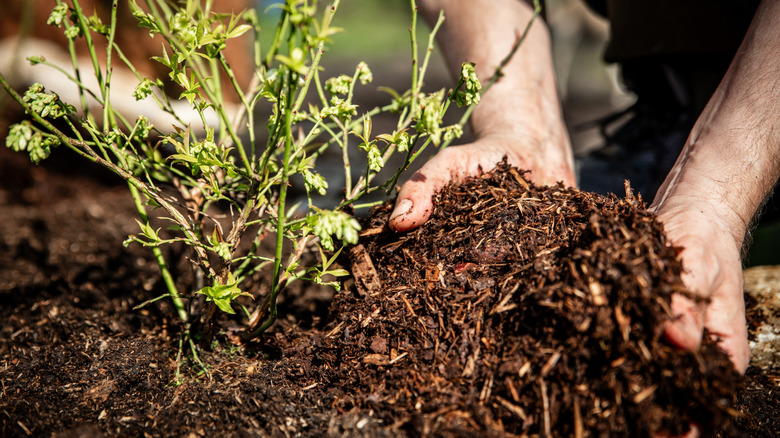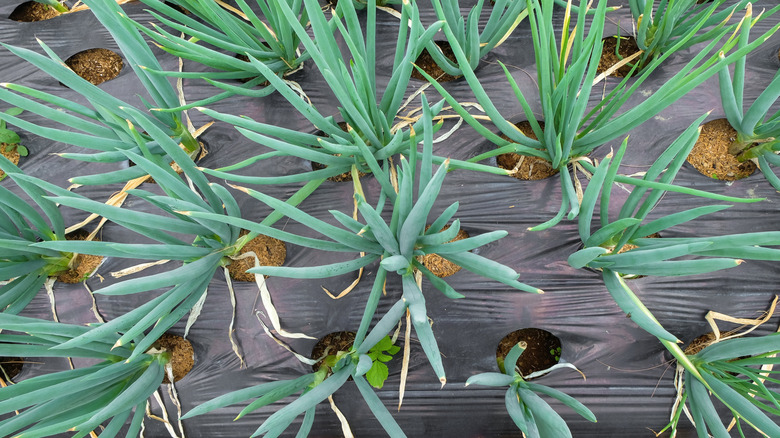The Classic Gardening Method That Prevents Weeds & Helps Give Plants A Boost
For some gardeners, applying mulch in your garden can feel like nothing more than a sweaty, tedious chore. "Is this really worth it?" you might wonder as you pick yet another sneaky splinter out of your hand. No matter how laborious you may or may not find the experience of mulching, however, there are indeed a number of benefits to installing a layer of mulch atop your garden soil.
The most often-touted benefit is that mulching helps to control weeds: Basically, by preventing sunlight from directly reaching the soil, a mulch layer will prevent unwanted seeds from germinating, so there will be fewer weeds to compete with your garden plants for resources. Additionally, by insulating the surface of the soil, mulch can help conserve moisture and prevent temperature extremes from causing too much damage to the roots of your plants.
In addition to protecting and insulating your soil, organic mulches in particular can actually improve the quality of your soil over time. As the organic matter decomposes, it can return nutrients to the soil – just keep in mind that this isn't a substitute for regularly applying fertilizer, as it won't provide all the same necessary nutrients in the same amounts. Mulch can also help to improve the structure of your soil, including its granulation and ability to absorb and hold water and nutrients. It can also work to mitigate some types of soil erosion.
How to choose the right type of mulch for your garden
Mulch can be divided broadly into two categories: organic and inorganic. Organic mulches are made of materials that were once living; shredded hardwood, pine bark, hay, and pine needles are examples of organic mulch (newspaper and cardboard also fall under this category — they were once plants!). Inorganic mulch includes landscape cloth, black plastic sheeting, and pebbles. When selecting which category and which mulch is right for your garden, consider what you want it to look like in your garden beds, as well as what benefits you'd most like to bring to your garden. Additionally, think about durability — do you want something that will decompose quickly and release nutrients, or something that will decompose very slowly or not at all?
Each type of mulch has its own pros and cons. Shredded wood is one of the easiest to find and most popular mulch choices. It's generally pleasantly uniform in shape and appearance and can nourish the soil as it decomposes. However, it can harbor fungus spores and might form a barrier to water and air penetration if left untended. Plastic sheeting excels at moisture, temperature, and nutrient retention, and will not decompose, but might blow away in windy conditions and will need to be removed after the growing season. Newspaper and cardboard might work best in a vegetable garden, while wood chips or shreds might work better around your roses and shrubs. Just make sure you think twice before creating mulch volcanoes around your trees!

